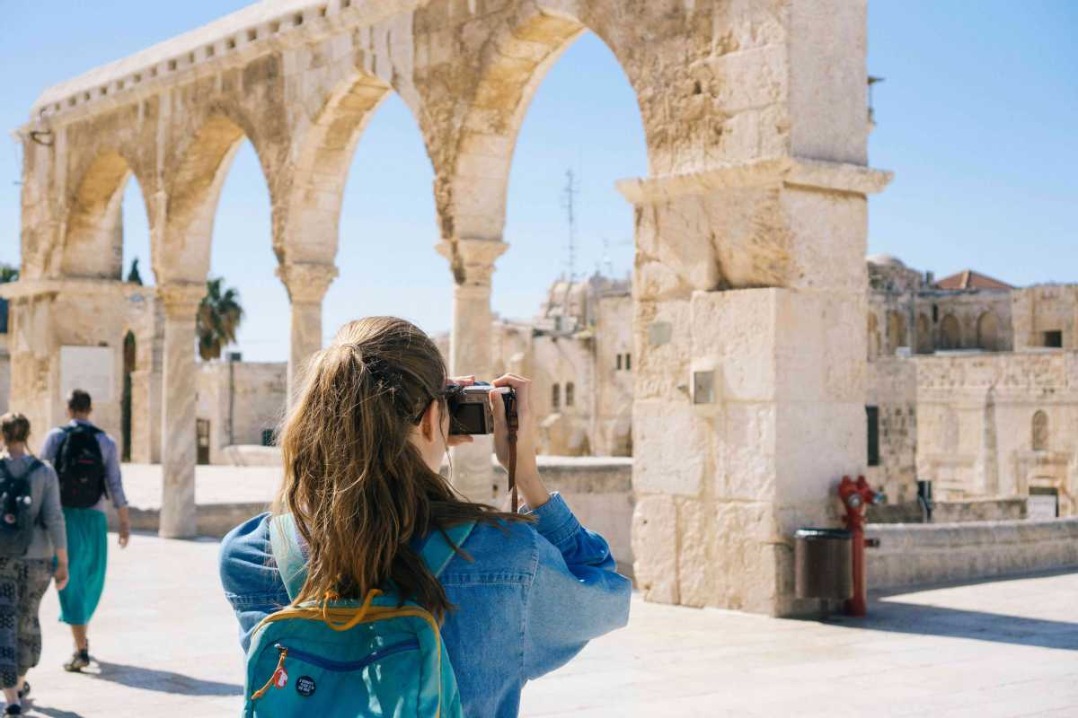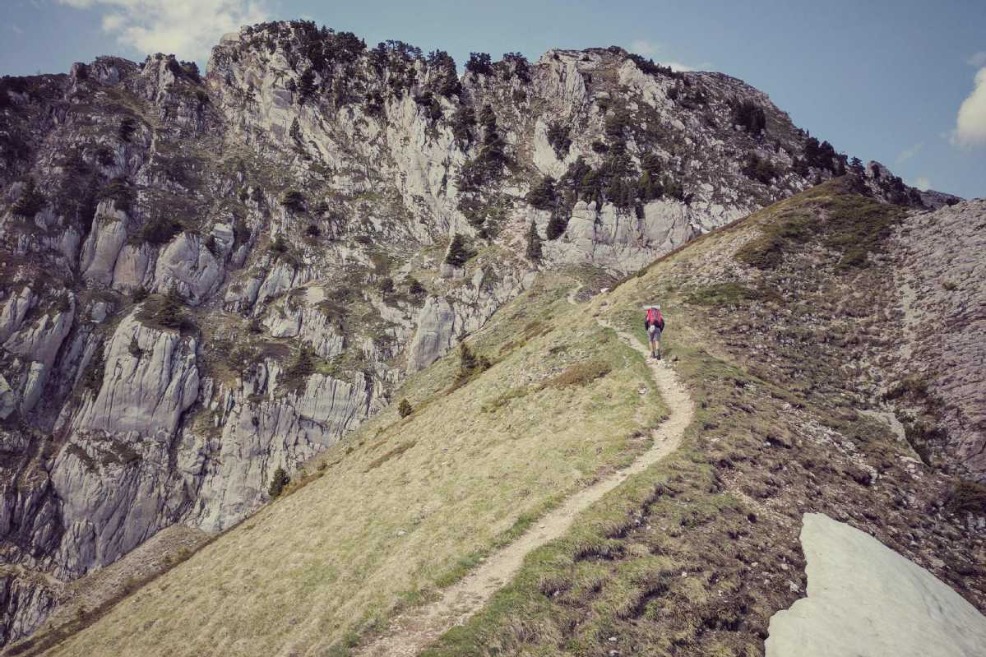如何在社交媒体发布旅游打卡 Checking in: a language guide to social media travel posting
The World of Chinese 2024-06-14 16:23

Learn how to "check-in" at China's viral tourist destinations and post about travel online

Travel may once have been about exploring the world, understanding new cultures, and discovering oneself. But a glance at Chinese social media suggests the main point of hitting the road is to "check in (打卡 dǎ kǎ)."
The term originally referred to office workers punching in and out of work, and "check-in" tourism works in much the same way. One must visit and post online as proof. Tourists head to specific tourist hotspots, take beautiful generic photographs, and post them on social media with formulaic captions.
In 2023, feeds on Xiaohongshu and WeChat "Moments" were full of posts of people enjoying barbecue food in Zibo, Shandong province, after the previously unheralded city went viral. This year, daka-obsessed travelers flooded to Tianshui, Gansu province, to try local "malatang (麻辣烫)" eateries that blew up online thanks to short videos on Douyin (China's version of TikTok). Nearly 1 million tourists visited the city in just three days in April, almost doubling the city's metropolitan population.
But maximizing "likes" on a checking-in post is a skill. Attractive travel photos of trendy destinations are mandatory, but descriptive captions that flaunt the experience help. First comes the standard check-in line:
I successfully checked in at the Universal Beijing Resort!
Běi jīng Huán qiú Yǐng chéng dǎ kǎ chéng gōng!
北京环球影城打卡成功!
Next, the poster must choose their voice. Perhaps they want to double down on the virality of their spot by focusing on another favorite daka phrase: "I miss you so much here (我在这里很想你 Wǒ zài zhè lǐ hěn xiǎng nǐ), similar to "Wish you were here" in English. The phrase has become ubiquitous at tourist destinations since a netizen's post of a road sign in Chongqing with the slogan went viral in 2022. Netizens now write the phrase into their posts with their destination:
I miss you so much in Xiamen.
Wǒ zài Xià mén hěn xiǎng nǐ.
我在厦门很想你。
Or they get more sophisticated and use:
The wind of missing you finally blows to Xiamen.
Xiǎng nǐ de fēng hái shi chuī dào le Xià mén.
想你的风还是吹到了厦门。
However, experienced "check-in" tourists know these phrases are already cliché. They take the literary path by repeating poignant quotes from books or movies, alongside photos of themselves looking pensively out to sea or toward a sunset. This line from the classic movie Roman Holiday (1953) frequently appears:
You can either travel or read, but either your body or soul must be on the way.
Yào me dú shū, yào me lǚ xíng, shēn tǐ hé líng hún zǒng yǒu yī gè yào zài lù shang.
要么读书,要么旅行,身体和灵魂总有一个要在路上。
Successfully checking in also requires looking the part and knowing the hottest local customs. For example, Xi'an, Shaanxi province, was China's capital during more than 10 imperial dynasties. Standard posts for a Xi'an trip, therefore, will include references to ancient culture and photos of cosplayers dressed in hanfu (traditional clothing of China's Han ethnic group), along with grand text, such as:
Strolling through the streets of Xi'an feels like traveling through time, returning to that era of unparalleled elegance.
Màn bù zài Xī'ān de jiē tóu, fǎng fú chuān yuè le shí kōng, huí dào le nà ge fēng huá jué dài de shí dài.
漫步在西安的街头,仿佛穿越了时空,回到了那个风华绝代的时代。
Others rely on references to literature and poetry to evoke emotions:
This is not Jinan, this is what Lao She called the "City of Springs!"
Zhè bù shì Jǐ nán, zhè shì Lǎo Shě bǐ xià de quán chéng!
这不是济南,这是老舍笔下的泉城!
A craze for ultra-intense "special-forces-style travel (特种兵式旅游 tè zhǒng bīng shì lǚ yóu)" that emerged in 2023 has taken checking in to the next level. Young tourists spend as little time and money visiting tourist spots as possible, getting in and out like in a military operation.
In the spring of last year, a man from Chengdu visited China's "Five Great Mountains" in just five days, covering thousands of kilometers across the country and posting photos at each summit. Netizens were impressed: The hashtag "young man who climbed the Five Major Mountains in five days displays his check-in schedule" quickly gained millions of views on the microblogging platform Weibo.
A post emphasizing the challenges and rapidity of one's tourism is bound to attract attention. For example:
I've eaten 16 meals in 24 hours across Zibo.
Èr shí sì xiǎo shí shí liù dùn fàn chī biàn Zī bó.
24小时16顿饭吃遍淄博。
However, focusing on speed risks compromising the quality of photographs. Sometimes it's best to seek out the most "photogenic (出片 chū piān)" locations to fill social media feeds with. Harbin, Heilongjiang province, for example, went viral last winter in part because of its stunning ice sculptures:
I've checked in to Harbin. Who says a crowded place can't be photogenic?
Hā ěr bīn dǎ kǎ, shuí shuō rén duō bù chū piān?
哈尔滨打卡,谁说人多不出片?
Or, put another way:
In Harbin, you can take great photos even with your eyes closed.
Hā ěr bīn zhēn shì yī gè bì yǎn pāi dōu chū piān de dì fang.
哈尔滨真是一个闭眼拍都出片的地方。
However, the explosion of viral spots and the craze for checking in doesn't always make for a pleasant travel experience. During this year's Lunar New Year holiday, over 9.5 million tourists flocked to the tropical Hainan province, leaving many stranded without flights when everyone tried to go home at the same time. Airfares soared to 10 times their original prices.
But complaining can make for good social media posts too:
You came to Sanya to see the sea. I came to Sanya and saw a sea of people.
Nǐ dào Sān yà lái kàn hǎi, wǒ dào Sān yà lái kàn rén shān rén hǎi.
你到三亚来看海,我到三亚来看人山人海。
来源:The World of Chinese
编辑:万月英

















 英语点津微信
英语点津微信 双语小程序
双语小程序